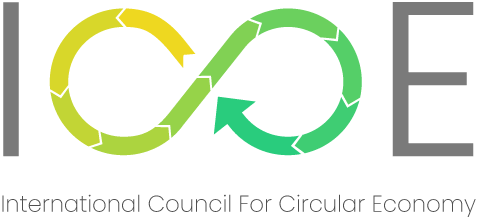Name of CEO/Founder: Dr. Mahadeva Swamy Hanchipura Mallesh
State | Country: Karnataka, India
Date of incorporation: 27th April, 2017
Link: http://cropdomain.com/
Vision and Mission Statement
VISION – To unlock the secrets of the soil — making the work of farmers a little lighter, increasing the productivity of every field and reducing the costly inputs that stretch farmers’ profits as thin as a wire. Through this we can revitalize ecosystems and communities for this generation and the next.
MISSION – To promote chemical free healthy agriculture practices in the country by making available nature derived inputs such as bio fertilizers, bio pesticides, and biostimulants etc., That are innovative, cost-effective solutions for customers/users, and partners. Which benefits shareholders and the planet at large.
PIONEERING CIRCULAR AGRICULTURE
Introduction
Agricultural waste management poses significant environmental challenges globally. Traditional disposal methods, such as burning crop residues, contribute to air pollution, greenhouse gas emissions, and soil degradation. Crop Domain Private Limited, a forward-thinking startup based in Bengaluru, India, is addressing these issues by transforming agricultural waste into eco-friendly products. This case study explores how Crop Domain’s innovative approaches align with circular economy principles, promoting sustainable agriculture and environmental stewardship.
Company Overview
Crop Domain Private Limited is dedicated to promoting chemical-free, healthy agricultural practices by providing nature-derived inputs like biofertilizers, biopesticides, and decomposers. The company’s mission is to enhance soil health, increase crop yields, and reduce the environmental impact of farming through sustainable solutions.
Problem Statement
Traditional agricultural practices often involve the disposal of crop residues through burning or discarding, leading to several environmental issues:
- Air Pollution and CO₂ Emissions: Burning crop residues releases significant amounts of carbon dioxide and other pollutants into the atmosphere, contributing to climate change and health problems.
- Soil Degradation: The absence of organic matter from decomposed residues leads to soil erosion and loss of fertility.
- Water Pollution: The use of chemical pesticides and fertilizers contaminates water bodies, affecting aquatic ecosystems and human health.
Additionally, reliance on chemical pesticides has led to pest resistance, necessitating higher chemical usage and further environmental harm.
Innovative solutions by Crop Domain
Crop Domain addresses these challenges by converting agricultural waste into valuable bio-based products, thereby closing the loop in agricultural processes. Their key products include:
- Biopesticides: Utilizing natural formulations, these products replace chemical pesticides, reducing environmental harm and addressing pest resistance issues. Being biodegradable, they decompose without leaving harmful residues, aligning with circular economy principles.
- Biofertilizers: Enriched with essential micronutrients, these fertilizers replenish soil health and enhance fertility. They promote sustainable agriculture by improving crop yields without depleting soil resources, creating a regenerative system that supports long-term productivity.
- Decomposers: These products break down organic waste, including certain types of plastic pollution, into simpler, non-toxic substances. This process reduces waste volume and converts it into useful byproducts like compost, which can be reintegrated into agricultural systems, promoting a zero-waste approach.
Alignment with Circular Economy Principles
Crop Domain’s operations exemplify the principles of a circular economy:
- Waste Reduction: By transforming agricultural waste into valuable products, the company minimizes waste that would otherwise contribute to pollution.
- Resource Efficiency: The conversion of waste into biofertilizers and biopesticides ensures that resources are utilized efficiently, reducing the need for synthetic inputs.
- Regeneration: The use of biofertilizers and decomposers enhances soil health, promoting a regenerative agricultural system that sustains productivity over time.
- Environmental Protection: Replacing chemical inputs with natural alternatives reduces pollution and conserves biodiversity, contributing to a healthier ecosystem.
Positive Impact
Crop Domain’s initiatives have led to significant positive outcomes:
- Reduction in Air Pollution and CO₂ Emissions: By preventing the burning of crop residues, the company helps reduce the release of CO₂ and other pollutants, mitigating climate change and improving air quality.
- Soil Health Improvement: The application of biofertilizers and decomposers enriches the soil with organic matter and nutrients, enhancing fertility and structure, leading to better crop yields.
- Water Quality Preservation: The use of natural biopesticides and fertilizers reduces the runoff of harmful chemicals into water bodies, protecting aquatic life and human health.
- Economic Benefits for Farmers: By providing cost-effective, sustainable alternatives to chemical inputs, Crop Domain supports farmers in reducing expenses and improving livelihoods.
- Health Benefits: Reducing reliance on chemical pesticides minimizes health risks for farmers and consumers, contributing to overall well-being.
Challenges and Future Directions
While Crop Domain has made significant strides, challenges remain:
- Market Adoption: Convincing farmers to transition from traditional chemical inputs to bio-based products requires education and demonstration of effectiveness.
- Regulatory Hurdles: Navigating the regulatory landscape for biopesticides and biofertilizers can be complex and time-consuming.
- Scaling Operations: Expanding production capacity to meet growing demand while maintaining quality and sustainability standards is a critical focus.
To address these challenges, Crop Domain plans to:
- Enhance Farmer Education: Conduct workshops and field demonstrations to showcase the benefits and application methods of their products.
- Engage with Policymakers: Collaborate with government agencies to streamline regulatory processes and promote supportive policies for sustainable agriculture.
- Invest in Research and Development: Continue innovating to improve product efficacy and develop new solutions for emerging agricultural challenges.
Crop Domain Private Limited exemplifies how innovative approaches to agricultural waste can drive sustainability and align with circular economy principles. By transforming waste into valuable, eco-friendly products, the company not only addresses environmental challenges but also supports farmers and promotes a healthier ecosystem. As they continue to overcome challenges and expand their impact, Crop Domain serves as a model for integrating circularity into agriculture, demonstrating that economic viability and environmental stewardship can go hand in hand.

